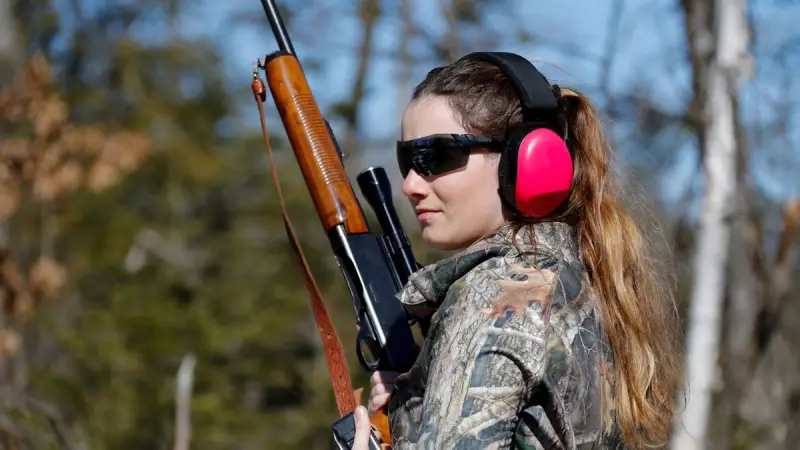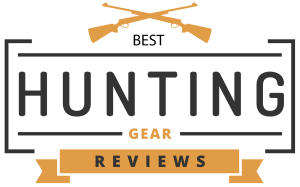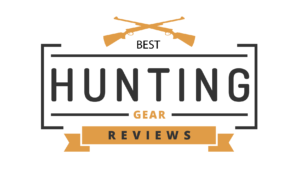Hunting can be a thrilling and rewarding experience, allowing hunters to connect with nature and test their skills. However, it also involves certain risks that hunters should not take lightly. Every year, accidents occur while hunting, some even resulting in death. However, if hunters follow the proper safety procedures, they can prevent many of these accidents.
Whether you are a seasoned hunter or a beginner, it is important to prioritize safety while in the field. In this article, we will discuss some essential hunting safety tips that every hunter should know by heart. From firearm safety to proper tree stand use, these tips will help ensure a safe and successful hunting trip.
Hunt With a Partner
Hunting with a partner is not only great for sharing the experience but it is advised for added safety. Hunting in a small group of 2-4 individuals can significantly increase your safety while in the field, especially if one of the individuals gets injured or lost.
Another benefit of hunting with a partner is that you can watch each other’s backs. When moving through the woods, one hunter can watch out for potential hazards while the other focuses on hunting. This can help prevent accidents and ensure that both hunters remain safe.
It is very important to communicate properly with your partner beforehand and during your hunting expedition to avoid chances of unexpected accidents from occurring.
Communication protocols should include agreeing on a plan for how you will communicate with each other, such as using hand signals or radios, and deciding on a meeting place in case you become separated.
It’s also very important to be aware of your partner’s location and movements, and communicate with them before making any sudden or unexpected movements. This is particularly important when hunting with firearms, as it can be dangerous to accidentally cross paths with another hunter.

Best Hunting Clothing
There are two main things to consider when it comes to clothing and hunting safety: weather conditions and visibility. Always make sure you know the weather conditions for your hunting trip, and dress accordingly.
In colder climates, hypothermia can set in very quickly if you are under-dressed, and even getting caught in the rain without proper rain gear can cause illness, which can become dangerous in the middle of the wild.
In warmer climates, heatstroke can also be a real threat. Make sure you have a good idea of the type of weather to expect, and that your clothes are suitable. Always prepare for the worst weather conditions.
When it comes to visibility, it’s important to remember that you might not be the only hunter out there. Wearing a blaze orange hat or jacket (or both!) makes you much more visible to any other hunters, who might not see you if you’re camouflaged. This can go a long way towards preventing unfortunate accidents.
In some areas and hunting seasons, wearing blaze orange is legally required if you go hunting.
Best Hunting Equipment
Having the right hunting gear is very important for a safe and successful hunting trip. Hunting equipment that every hunter should consider include:
- firearm and ammunition
- proper clothing
- hunting boots
- binoculars
- communication device
- knife
- backpack
- first aid kit
- Map or GPS; and/or
- tree stand or blind
Having the right hunting gear can really make or break your entire experience. Its important to do proper research before you make a purchase and to test the gear out before heading out into the wild.

Gun Handling and Storage
This is probably one of the most important hunting safety tips as it deals with the firearm directly. The number one rule in gun safety as a hunter is to treat every gun like a loaded gun. This means that you should keep your finger off the trigger unless you are taking a shot. Do not rely on the gun’s safety mechanism alone.
It’s also important to point your gun in safe directions, like aiming the gun towards the ground instead of your partner when you are walking through the woods — even when the gun is unloaded.
Also be sure to store your guns appropriately between hunting trips to prevent damage to the gun that could cause unexpected problems in your next hunting trip.
Note: Experts recommend that hunters undergo professional training in gun handling and safety before venturing into the field. This can help ensure that they have the necessary skills and knowledge to handle guns safely and responsibly.
Hunting Laws and Regulations
Before embarking on a hunting trip, it is important to research the area where you will be hunting and familiarize yourself with the local hunting regulations.
This includes knowing which animals are legal to hunt, what type of weapon can be used, and what the bag limits are.
Regulations such as not shooting within 150 yards of a campsite, or not shooting across a service road are there to keep people safe. Also, be sure to obtain any necessary permits or licenses before heading out.
Awareness and Knowledge of the Hunting Area
Make sure you have good knowledge of the area you are hunting in. This includes geography, weather conditions, and any dangerous wildlife that might be in the area. Plan your route beforehand, making note of the geography and landmarks, and make sure you have a spare map and compass handy on your trip.
Be aware of your surroundings, and always make sure you have a good idea of where you are, so that you don’t get lost.
Make sure you do your research on any dangerous wildlife in your hunting area, and that you take the necessary precautions. Always be aware of your surroundings, and whether you might be venturing into these animals’ territories.
Respect Your Fellow Hunters
This goes without saying, but it is very important that you, as a hunter, take note of and respect other hunters in your proximity. There are a few things that you and/or your partner can do to ensure that you are safe when you share the hunting area with other hunters.
The first thing you can do is to wear visible clothing, such as blaze orange, to make yourself visible to other hunters in the area.
Secondly, it’s important to communicate with the other hunters. If possible, agree on designated areas for hunting and communicate when you are entering or leaving an area.
Thirdly, do not shoot at movement. This is very important. Shooting at movement could result in accidentally shooting another hunter and could lead to fatal injuries or death.
It is also very important to stick to the hunting laws and regulations of the area that you are hunting in. Respect the hunters around you and try to avoid interfering with other hunter’s hunts. Finally, alert others of a downed game. If a hunter takes down game, they should make sure to alert other hunters in the area so they are aware of the situation and can avoid the area.
Targeting and What Is Beyond the Target
It’s extremely important to think about where you are aiming when you take the shot. You obviously need to make sure you’re aiming to get a clean, humane kill, but you also need to be aware of what is behind and around the animal you’re aiming at.
If you miss the shot, or the bullet goes clean through, is there any danger to humans or animals behind your target? Is there a possibility you might hit something else to the side or in front of the animal? If you are unsure whether you’re putting someone or something else in danger with your shot, it’s better to be safe than sorry.
Ultimately, knowing what is in front of, next to, and beyond your target is your responsibility. Don’t take the shot if you aren’t sure about any of the three.
Safe Hunting Requires Good Communication
CommunicationCommunication gives you a lifeline to the outside world, which could be invaluable in an emergency. If possible, regularly update a friend or family member on your whereabouts using a cellphone or satellite phone.
In the case that you miss a check-in, they can call the relevant authorities to make sure that you are safe. It’s also recommended to have your hunting plan in writing, including dates, times, and locations, and leave it with someone. In case of emergencies, authorities can use this information to narrow down a possible search area.
Be Prepared for Emergencies When Hunting
Being prepared for emergencies is an important aspect of hunting safety. Before going hunting, hunters should prepare for potential emergency situations such as injuries, inclement weather, or getting lost. To be ready for emergencies while hunting, consider the following key tips:

1. Carry a First Aid Kit
Hunters should always carry a well-stocked first aid kit with them while hunting. The kit should include items such as bandages, antiseptic wipes, gauze pads, and a tourniquet.
2. Bring Extra Food and Water
Hunters should carry enough food and water to last for the duration of their hunt. Additionally, hunters should carry extra food and water in case of emergency situations that may require them to stay in the field longer than planned.
3. Bring a Communication Device
Hunters should carry a communication device, such as a cell phone, two-way radio, or whistle, in case of emergency situations. Make sure to test the device before heading out and keep it fully charged.
4. Know Basic Survival Skills
Hunters should know basic survival skills, such as building a shelter, starting a fire, and finding sources of water. These skills can be invaluable in case of emergency situations.
5. Share Your Hunting Plan
Before heading out, hunters should let someone know where they are going, when they plan to return, and what route they will take. This information can be useful in case something does happen and will ensure that someone will know to call for a search and rescue team.
Ethical Hunting
Respecting wildlife is a crucial part of hunting ethics. Avoid wasteful hunting by never shooting more than you need for food. Also, be sure to take clean shots and do not attempt to take shots that are beyond your skill level. Ethical hunting also means not shooting at animals that are not legal to hunt or that are not part of the intended species.
As a hunter you should also be aware of the habitat you are entering and you should try to leave as little ‘evidence’ as possible. This means not disturbing or destroying any part of the natural environment. It’s also important not to litter and to clean up after yourself as materials like plastic can be harmful to all the animals in the area.
Hunting Safety Bottom Line
As hunters, we have a responsibility to promote and practice safe hunting techniques. It’s important that we take every precaution necessary to ensure a safe and enjoyable hunting experience, not only for ourselves but also for other hunters and the wildlife we hunt.
We can prevent accidents and promote a sustainable hunting practice that future generations can enjoy by incorporating these above mentioned safety tips into our hunting routines.

Author: Oliver Wright
Bio: My name is Oliver Wright, owner, and writer of LockJudge.com. My interest in lock picking and security sparked after watching a video by the LockPickingLawyer. As a security professional, I created Lockjudge.com to share my knowledge and experience on related topics.
The website covers reviews of lock-picking tools, tutorials on techniques, and articles on security trends. I strive to make complex topics easy to understand, providing accurate and valuable information. Our website is regularly updated with new content to keep readers informed.

